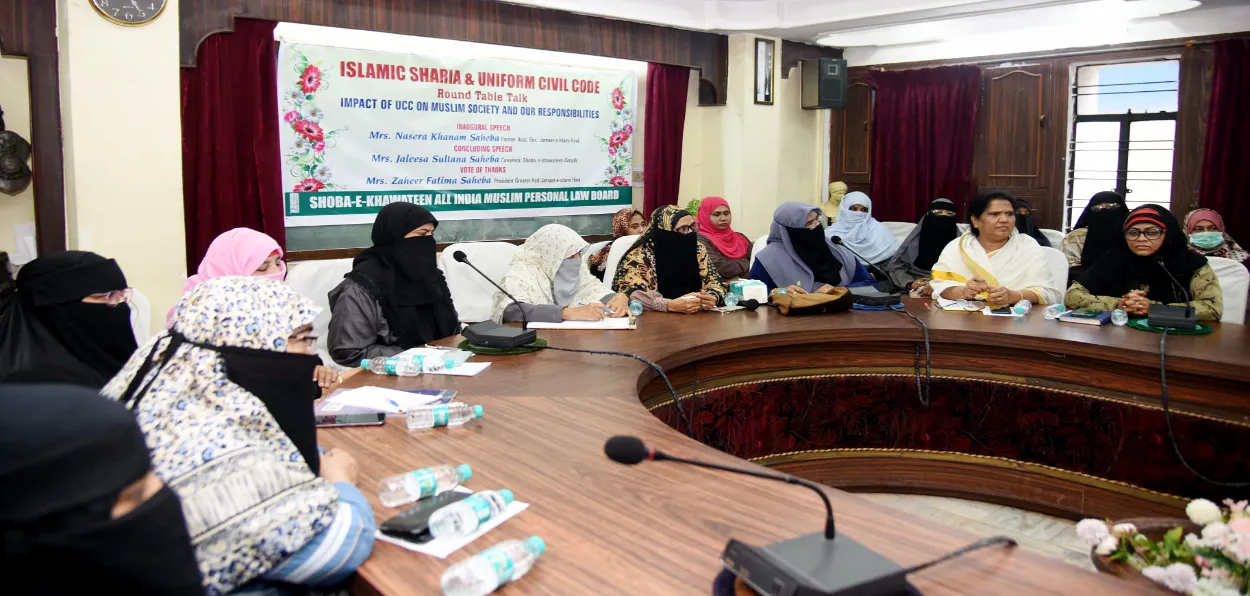
New Delhi
The All India Muslim Personal Law Board on Sunday said that they will challenge the Supreme Court latest verdict, allowing divorced women to claim maintenance after the period of "Iddat". The board will also challenge the Uniform Civil Code (UCC) law passed in Uttarakhand.
The All India Muslim Personal Law Board held a working committee meeting today in which various issues were discussed.
Syed Qasim Rasool Ilyas, spokesperson for the board, stated that in the meeting, they have approved eight resolutions.
"The first resolution was about the recent Supreme Court judgement. This decision conflicts with Sharia law. The resolution states that marriage in Islam is considered a sacred bond. Islam makes every effort to prevent divorce. The Supreme Court's decision claims to be in the "interest of women", but from the perspective of marriage, this decision will become problematic for women. If a man has to provide maintenance even after divorce, why would he divorce? And if bitterness has developed in the relationship, who will suffer from it? We will consult with the legal committee to work on how this decision can be rolled back," Ilyas said.
The Supreme Court on July 10 ruled that Section 125 Code of Criminal Procedure (CrPC) applied to all married women including Muslim married women and they can claim maintenance from their husbands under these provisions.
The top court also echoed that time has come for Indian men to recognise the role and sacrifice of 'homemakers' who are strength and backbone of an Indian family and they must provide financial support to her by having having joint accounts and ATMs
A bench of justices BV Nagarathna and Augustine George Masih ruled that Section 125 CrPC, which deals with wife's legal right to maintenance, is applicable to all women and divorced muslim female can claim maintenance from her husband under it.
Speaking on the UCC, Syed Qasim Ilyas said that their legal committee is working on the process to challenge the UCC law in Uttarakhand.
"Diversity is the identity of our country, which our Constitution has preserved. The UCC attempts to end this diversity. The UCC is not only against the Constitution but also against our religious freedom. The UCC passed in Uttarakhand is causing a lot of trouble for everyone. We have decided to challenge the UCC in Uttarakhand, and our legal committee is preparing for it," he added.
The Uttarakhand government's proposed law on the Uniform Civil Code is unnecessary and affront to unity in diversity: All India Muslim Personal Law Board#UCCBill pic.twitter.com/aUl4lwy1hM
— All India Muslim Personal Law Board (@AIMPLB_Official) February 8, 2024
The spokesperson of the board also highlighted the dispute based on religion in the country, citing the Worship Places Act of 1991.
"In our country, before the Babri Masjid incident, there was a law called the Worship Places Act 1991. All the people think that the Babri Masjid would be the last religious dispute in India. It is unfortunate that new disputes are still emerging. We are presenting in court that these disputes should not be entertained under the Worship Places Act. We request the Supreme Court to include the religious act in the latest disputes," Qasim Ilyas said.
He also emphasized on the alleged recent increase in mob lynching cases in the country.
"The recent Lok Sabha election results clearly show that voters have voted against the sentiments of hatred and enmity. Despite this, cases of mob lynching have not decreased. After the election results, there have been 11-12 cases of mob lynching. This barbaric act undermines the rule of law. If someone has committed a crime, it is the law's right to punish them," he said.
At last, speaking on the Palestine-Israel war, Ilyas urged the Indian government to end all strategic relations with Israel and put pressure on it to end war.
"The issue of Palestine is also important. Our country's stance has always been clear that we support the two-nation theory. We all know that Israel has illegally occupied the area. Currently, there is a war going on there, and thousands of people have been killed. It is surprising that even now, big countries are supporting Israel. The board has condemned this and expressed that the response of Muslim countries is also not good," he said.
"The board urges the government to end strategic relations with Israel and to apply pressure for a ceasefire. Our country should intervene in this matter, just as we did in the Russia-Ukraine war," he added.
